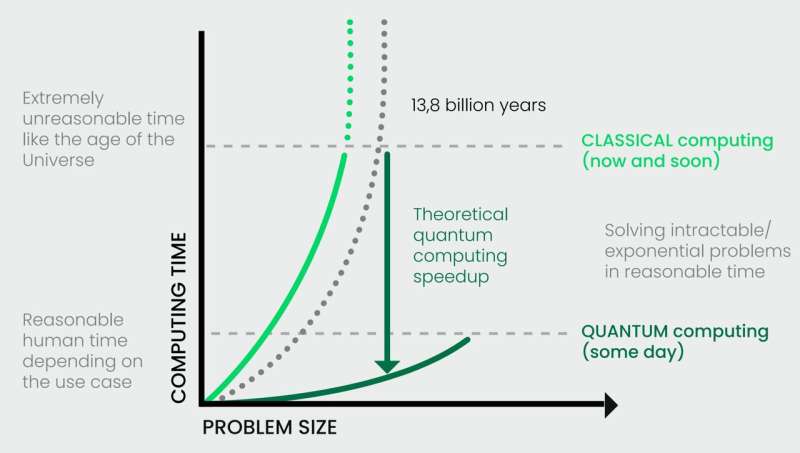
In the future, the use
of quantum computers could make a significant contribution to promoting greater
sustainability in global developments. This was shown in a white paper, which was recently presented at the UN Climate Change
Conference in Dubai and included contributions from the HPCQS consortium.
Quantum computers have the potential to solve certain problems in a much more energy-efficient way than is possible with conventional computers. They also promise new insights into numerous problems that are considered key to global sustainable development. Even if they may not carry out any work in the physical sense, information technologies today already require a lot of energy, according to a much-cited study by Huawei.
In particular, large data and computer centers are among the major consumers. However, it is not just cloud services on the Internet but also supercomputers in research and industry that demand a lot of energy. Frontier, currently the world's fastest supercomputer, consumes over 500 megawatt hours of electricity per day, the same amount of electricity used by 17,000 households.
Quantum computers, in contrast, not only offer the potential to solve tasks much faster than is possible with conventional computers. There are also many indications that they require considerably less energy to do so. To exploit this advantage, the Jülich Supercomputing Centre is working on integrating quantum computers into its computing environment.
In various initiatives and projects, quantum computers are being coupled with supercomputers trimmed for efficiency to create hybrid systems, some of which users can already access today, as Prof. Kristel Michielsen points out. The physicist coordinates the HPCQS project and is head of the Jülich quantum computer infrastructure JUNIQ.
Participants in the "Blaise Pascal [re]generative quantum challenge" demonstrated that quantum computers are particularly suitable for applications that promote global sustainability as part of a hackathon in autumn 2023, identifying the following areas of application:
- Sustainable agriculture
- Drug development
- Smart cities
- Smart grids and affordable/clean energy
- Sustainable transport, industry, and circular economy
- Environment, climate, and biodiversity

 Previous page
Previous page Back to top
Back to top







